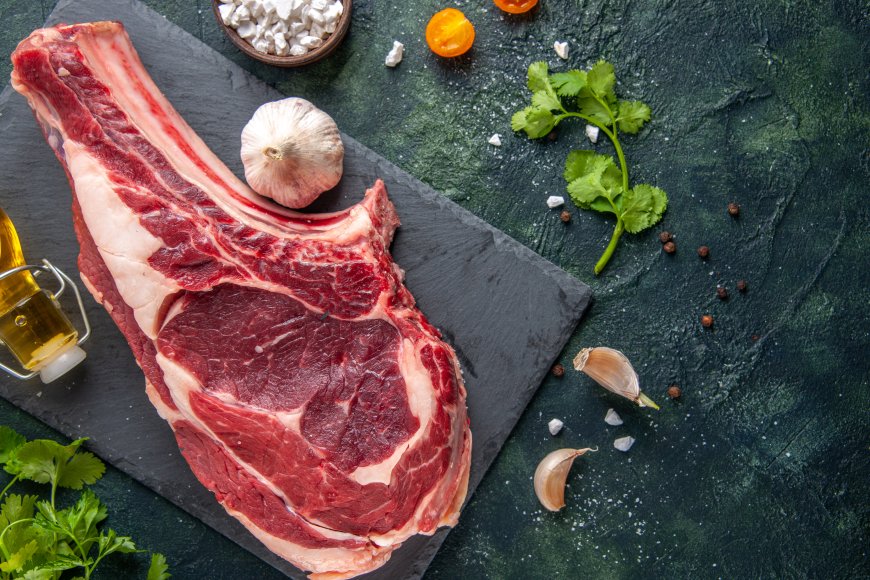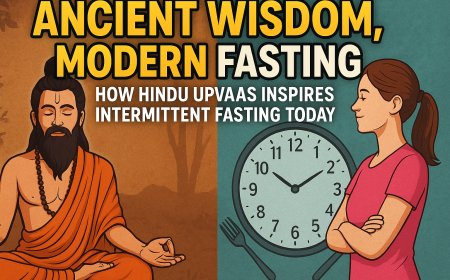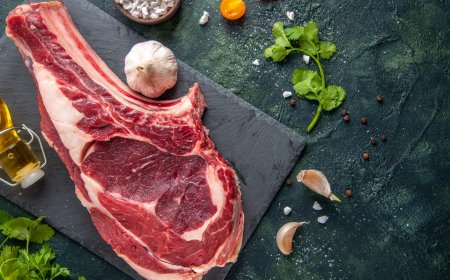American Men Eat Too Much Meat: The Hidden Health Risks
Too much meat can harm heart health, increase cancer risk & cause weight gain. Discover why lean fasting is the smarter path for American men.

In the land of the free and the home of the brave, the American diet—especially for men—leans heavily toward meat. While steak dinners, burgers, and barbecued ribs may be part of cultural tradition, recent health data shows that consuming too much meat—especially red and processed meat—is taking a serious toll on health.
In this article, we’ll break down why the typical meat-heavy American diet poses serious risks, what those risks are, and how lifestyle changes like lean fasting can offer a healthier path forward.
The Meaty Truth: How Much Meat Are American Men Eating?
According to the USDA, the average American man eats more than 100 grams of meat per day—far above the global average and well beyond what health experts recommend. This includes a high intake of red and processed meats, which have been increasingly linked to chronic illnesses.
While protein is essential, excess meat consumption—especially from sources high in saturated fat and cholesterol—can do more harm than good.
Why Too Much Meat is a Problem
1. Heart Disease and High Cholesterol
Red meat is high in saturated fat, which raises LDL (bad cholesterol) levels in the blood. Numerous studies, including those by the American Heart Association, confirm that diets rich in red and processed meat increase the risk of heart disease and stroke. Lean proteins like fish, chicken, or plant-based alternatives can significantly reduce this risk.
2. Colon Cancer and Other Digestive Disorders
The World Health Organization has classified processed meats as carcinogenic and red meat as probably carcinogenic to humans. American men who eat too much meat are at a significantly higher risk of developing colon cancer. This is due in part to chemicals used in processing and cooking methods like grilling at high temperatures, which can produce harmful compounds.
3. Weight Gain and Obesity
High meat consumption is often linked to larger portion sizes and calorie-dense meals. This contributes to weight gain, especially when combined with a sedentary lifestyle. Obesity in turn raises the risk for diabetes, hypertension, and other metabolic diseases.
4. Kidney and Liver Strain
High protein intake—particularly from red meats—can overwork the kidneys and liver. This is especially concerning for those with existing health conditions or at risk of developing chronic disease.

The Cultural and Social Factors
In the U.S., meat-rich meals are deeply embedded in social customs—barbecues, sports events, and holidays often feature large portions of meat. There's also a perception that real men eat meat, a stereotype that encourages unhealthy eating patterns. But it's time to reframe this mindset and align strength with smart, health-conscious eating.
The Lean Fasting Alternative
Enter lean fasting, a modern health strategy that focuses on nutrient-dense eating combined with time-restricted eating windows. It doesn’t just reduce meat consumption—it promotes metabolic health, fat loss, and improved energy levels.
Lean fasting supports:
-
Reducing inflammation
-
Balancing insulin levels
-
Encouraging the body to burn fat for fuel
-
Promoting plant-forward, lean protein meals over meat-rich meals
Swapping in high-fiber, plant-based foods and lean proteins during your eating windows can help decrease reliance on red and processed meats while keeping you satisfied and energized.
Easy Meat Alternatives That Don't Sacrifice Flavor
You don't have to go full vegan to get the benefits. Start with these easy swaps:
| Instead of This | Try This |
|---|---|
| Beef burgers | Turkey or black bean burgers |
| Bacon | Tempeh or turkey bacon |
| Steak | Grilled portobello mushrooms or lentil patties |
| Sausages | Chicken or plant-based sausages |
These alternatives not only reduce your meat intake but also introduce a variety of nutrients that support heart and gut health.
A Balanced Plate for the American Man
Here’s what a lean-fasting friendly, reduced-meat plate could look like:
-
Lean Protein (25%) – grilled chicken, fish, or legumes
-
Complex Carbs (25%) – quinoa, brown rice, or sweet potato
-
Veggies (50%) – broccoli, spinach, bell peppers, etc.
-
Healthy Fats – avocado slices or olive oil drizzle
This balance gives your body the nutrients it needs without overloading on meat or saturated fat.
Testimonials and Results: A Shift in Habits
Many men who have adopted lean fasting and reduced meat intake report benefits such as:
-
Lower cholesterol and blood pressure
-
Weight loss and lean muscle gains
-
Better digestion and reduced bloating
-
Increased energy and mental clarity
With increased awareness and support, men across America are shifting away from the traditional "meat and potatoes" diet in favor of something smarter.
Final Thoughts: It's Time to Rethink the American Diet
Eating meat isn’t inherently bad, but eating too much meat—especially red and processed meat—puts American men at significant health risk. The shift toward lean fasting and balanced, lower-meat diets offers a simple, sustainable solution.
It’s not about giving up your favorite foods—it's about making smarter choices that support long-term health, energy, and performance.
Frequently Asked Questions (FAQs)
Q1: How much meat is considered too much?
The American Institute for Cancer Research recommends no more than 18 ounces of cooked red meat per week. Processed meats should be avoided as much as possible.
Q2: Can I still build muscle without eating a lot of meat?
Absolutely. Lean fasting combined with plant-based proteins like lentils, beans, tofu, and whole grains supports muscle development without the health risks of high meat intake.
Q3: Is lean fasting the same as intermittent fasting?
Lean fasting is a variation of intermittent fasting that emphasizes nutrient-rich, low-inflammatory foods, making it especially effective for fat loss and metabolic health.
Q4: What meats are safer to eat regularly?
Lean meats like turkey, chicken breast, and fish are better options. Avoid frequent consumption of processed meats like bacon, sausage, and deli cuts.
Q5: Will cutting back on meat leave me feeling tired?
Not if you're replacing it with balanced meals rich in whole grains, healthy fats, vegetables, and plant-based proteins. You’ll likely feel more energized due to reduced inflammation and better digestion.

























